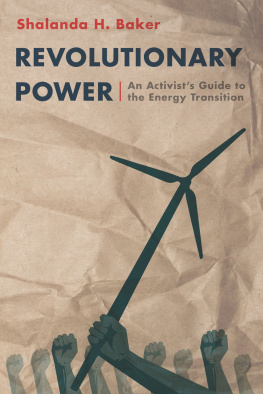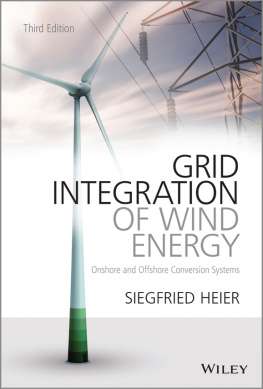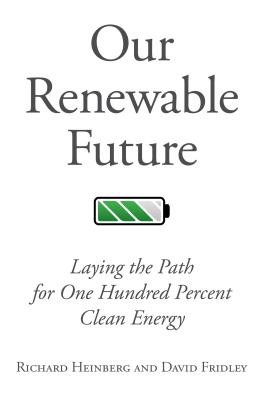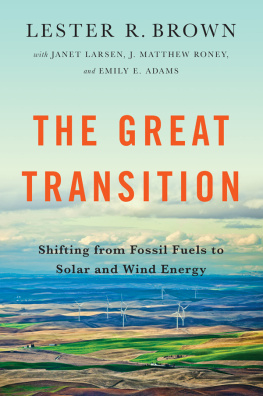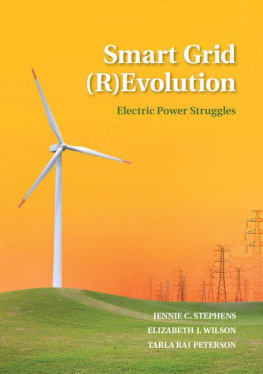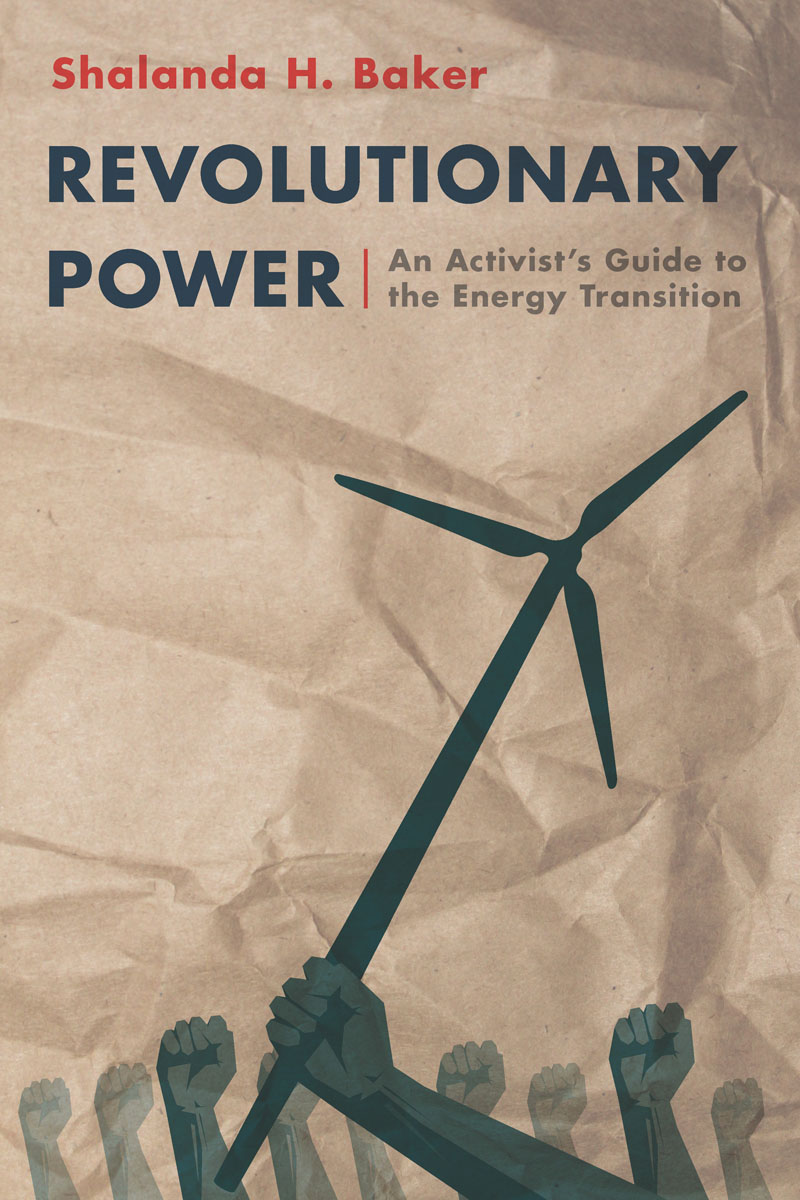
About Island Press
Since 1984, the nonprofit organization Island Press has been stimulating, shaping, and communicating ideas that are essential for solving environmental problems worldwide. With more than 1,000 titles in print and some 30 new releases each year, we are the nations leading publisher on environmental issues. We identify innovative thinkers and emerging trends in the environmental field. We work with world-renowned experts and authors to develop cross-disciplinary solutions to environmental challenges.
Island Press designs and executes educational campaigns, in conjunction with our authors, to communicate their critical messages in print, in person, and online using the latest technologies, innovative programs, and the media. Our goal is to reach targeted audiencesscientists, policy makers, environmental advocates, urban planners, the media, and concerned citizenswith information that can be used to create the framework for long-term ecological health and human well-being.
Island Press gratefully acknowledges major support from The Bobolink Foundation, Caldera Foundation, The Curtis and Edith Munson Foundation, The Forrest C. and Frances H. Lattner Foundation, The JPB Foundation, The Kresge Foundation, The Summit Charitable Foundation, Inc., and many other generous organizations and individuals.
The opinions expressed in this book are those of the author(s) and do not necessarily reflect the views of our supporters.

Island Presss mission is to provide the best ideas and information to those seeking to understand and protect the environment and create solutions to its complex problems. Click here to get our newsletter for the latest news on authors, events, and free book giveaways.

2021 Shalanda H. Baker
All rights reserved under International and Pan-American Copyright Conventions. No part of this book may be reproduced in any form or by any means without permission in writing from the publisher: Island Press, 2000 M Street, Suite 650, NW, Washington, DC 20036
Library of Congress Control Number: 2020939056
All Island Press books are printed on environmentally responsible materials.
Manufactured in the United States of America
10 9 8 7 6 5 4 3 2 1
Keywords: American Legislative Exchange Council (ALEC), centralized energy system, climate fundamentalism, community energy, distributed energy, energy democracy, energy equity, energy insecurity, energy justice, energy poverty, environmental justice, green bank, Hawaii energy generation, Hurricane Maria, investment tax credit (ITC), net energy metering (NEM), New York Climate Leadership and Community Protection Act (CLCPA), Public Utilities Regulatory Policies Act (PURPA), Puerto Rico energy generation, renewable portfolio standards
Contents
For Chuck and Connie
Introduction
I have to start at the beginning. I didnt set out to write a book about energy justice. My journey to write Revolutionary Power: An Activists Guide to the Energy Transition is as improbable as my current role as a law professor. I grew up in Austin, Texas, a sprawling, liberal college town in the heart of a deep red state. My mother played the role of mom and dad and encouraged us to go to college, despite a lack of resources to finance a college education. I excelled in sports, made a name for myself as a student leader, and somehow found my way to the United States Air Force Academy for college.
I spent four years at the academy quietly aware of injustice and structural inequality. I was a Black, queer, young woman discovering her sexuality during the height of Dont Ask, Dont Tell, a government policy that banned military service for LGBT people. I quickly learned to code shift and blend into the militarys straight, largely white, male environment.
As a cadet and young officer, I got involved with the wrong partner. The intimate partner violence I experienced in that relationship made me realize the unique burdens placed on service members who take a vow to serve their country, but yet cannot live freely and openly because of whom they love. I eventually left the military under the shadow of Dont Ask, Dont Tell and committed the rest of my professional life to service in pursuit of social justice.
My experiences in the military and subsequent work in the nonprofit sector inspired me to go to law school. After graduation, I found myself, improbably, working at a large, corporate law firm as a project finance lawyer. I spent my days learning how to put together large energy project transactions, ranging from the dirtiest of energy sources to renewable energy. In practice, I became familiar with financing documents, environmental regulations, federal energy regulations, real estate, and, of course, the oil and gas industry.
In 2008, I received a transfer to the law firms Tokyo office. It was an exciting and heady time for me. I landed in Tokyo one week after Lehman Brothers declared bankruptcy and found myself living and working in Japan during the largest global financial disaster since the Great Depression. In an emotional year filled with highs and lows, I witnessed the election of our countrys first Black president, Barack Obama; my family struggled with unemployment and underemployment; and the US federal government rushed to bail out the very banks whose staggering risk-taking had led to the financial crisis. I also watched as my colleaguessenior partners at the law firmworked to protect wealthy corporate clients from the disintegration of the global financial system. Meanwhile, symptoms of ecological collapse became increasingly apparent. In 2008, we collectively witnessed the hottest year on record, a milestone that we have successively plowed through nearly every year thereafter. That year marked a turning point for me. I had decided to become a lawyer to make the world a better place, not to help perpetuate inequality and preserve a broken system. I saw the twin crises of the global financial crisis and climate change as symptoms of a much larger problem, and I wanted to be part of the solution.
In July 2009, I left the practice of law. I left legal practice with massive law school debt, but with enough savings to create a bridge to whatever was next. I had heard about Afro-Indigenous peoples in Colombia fighting against dirty coal mines, and I wanted to be part of that fight. I moved to Mexico to brush up on the Spanish I had learned as a girl living in bilingual, bicultural Austin and planned to work my way down to Bogot, where I had spent part of a prior vacation making contacts. I never made it to Bogot.
Instead, I spent the bulk of the next year living in southern Mexico in Oaxaca, a place known for its staggering physical beauty, high poverty rates, and rich Indigenous culture. In January 2010, I landed in the city of Oaxaca on a one-way ticket, with the only sure thing being that I would work with someone, somewhere, against injustice. While there, I worked with Indigenous weavers who were hoping to learn enough English to bargain on equal footing with the many tourists who came there seeking a deal on artisan rugs. As I lost myself in the mountains and ocean in Oaxaca, I shed some of the anxieties of my life as a corporate lawyer. Before I had left for Mexico, a mentor had convinced me to pursue my dream of teaching law, so I planted a few seeds for a future as an academic, unsure of whether they would take root.
Next page
